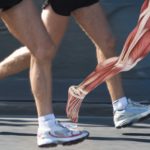BY RONI CARYN RABIN NYTimes
Many women with osteoporosis also suffer from incontinence. Now a Canadian clinical trial has found that simple pelvic floor muscle training can significantly reduce leakage episodes.
Women with osteoporosis are at risk for incontinence because fractures of the lumbar spine can make them slump, putting more pressure on the pelvic floor, said Chantale Dumoulin, a professor in the faculty of medicine at the University of Montreal and senior author of the study, published online earlier this month in Menopause: The Journal of the North American Menopause Society.
In the study, 46 post-menopausal women with osteoporosis or low bone density and occasional incontinence reduced their leakage episodes by 75 percent after just 12 weekly sessions of physical therapy. A comparison group of similar women who did not get physical therapy saw no improvement, the study found. A year later, the 23 women who had three months of physical therapy maintained their improvement, while the incontinence of the 23 women in the control group, who received only education about osteoporosis, had worsened, researchers found.
The findings are important because exercise helps in the treatment of osteoporosis, but those with incontinence are prone to leaking urine when they’re physically active, deterring them from exercising.
The physical therapy regimen used in the clinical trial involved one hour-long session of physical therapy including pelvic floor muscle-training, followed by 30-minute weekly sessions for 11 weeks. Although pelvic floor muscle training is widely prescribed for the prevention of urinary incontinence in women, researchers said this was the first study to evaluate its use in older women with both osteoporosis and either stress incontinence or urge incontinence.
“The main message for women who have osteoporosis is that they should do pelvic floor exercises even if they don’t have incontinence, because fractures of the lumbar spine cause them to be slumped, and that puts more pressure on the pelvic floor,” said Dr. Dumoulin.







